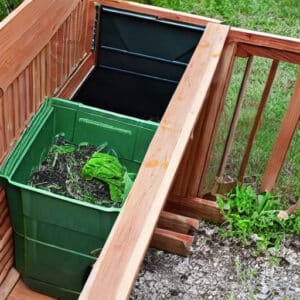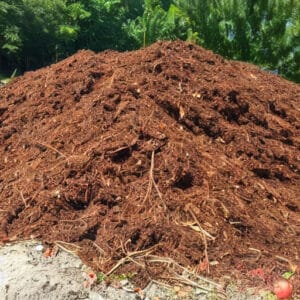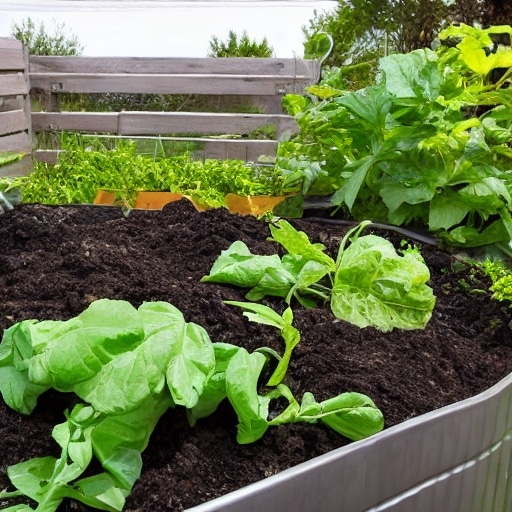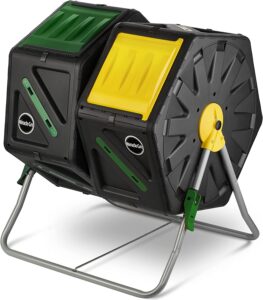Gardening is a great way to take control of your health, since you can grow your own healthy food that you know is safe for your family. While it takes a lot of work to consistently keep up a garden, the result is worth it. One way you can keep up with your garden and help it flourish is by composting.
Composting is a great way to improve the quality of your garden soil, reduce waste, and contribute to a healthier environment. It’s an easy process that anyone can do, regardless of their gardening experience. In this beginner’s guide to composting, we will cover the basics of composting and provide tips for making the most of your compost pile.
What is Composting?
Composting is a natural process that breaks down organic material into a nutrient-rich soil amendment. Organic material includes food scraps, yard waste, and other biodegradable materials. When these materials are combined and allowed to decompose over time, they create a dark, crumbly substance that can be added to soil to improve its quality.
How Does Composting Work?
Composting works by providing the ideal conditions for microorganisms to break down organic material. These microorganisms, including bacteria and fungi, break down the material into smaller pieces, releasing carbon dioxide and other gases as they do so. Over time, the material will break down into a dark, crumbly substance that resembles soil.
What Materials Can be Composted?
Most organic materials can be composted, including:
- Fruit and vegetable scraps
- Coffee grounds and tea bags
- Eggshells
- Yard waste, such as grass clippings and leaves
- Shredded paper and cardboard
- Hay and straw
You can add almost anything that’s biodegradable to your compost solution. If you have a farm or raise animals, you can compost manure. If you get a newspaper every morning, you can compost the paper when you’re done. Most people compost food scraps, but the options are extensive.
What Shouldn’t Be Composted?
It’s important to avoid adding materials to your compost that are not biodegradable or may attract pests, such as meat, dairy, or pet waste.
How Do You Start Composting?

Compost is really just a fancy word for decayed organic material, which people commonly use to fertilize plants. To get started, all you need is some kind of organic material and a box or designated pile. A bin can be purchased, we like the one below. If you are looking to save money on your gardening, you can make your composting bin from materials such as wood or plastic.
DIY Composting Bin Instructions
Materials:
- A plastic container or bin (with a lid)
- Drill with a 1/4 inch drill bit
Instructions:
Choose a suitable container or bin: Choose a plastic container or bin that has a lid and is at least 18 inches deep. The bin should be big enough to hold the amount of kitchen waste you produce.
Drill ventilation holes: Use the drill and 1/4 inch drill bit to create several ventilation holes in the top and sides of the bin. This will allow air to circulate and help the composting process.
Add organic matter: Place a layer of dry leaves or grass at the bottom of the bin. Then add a layer of kitchen scraps. Alternate between layers of dry matter and kitchen scraps until the bin is full.
Keep the compost moist: Sprinkle the compost with water to keep it moist. However, be careful not to add too much water, as this can cause the compost to become too wet and slow down the composting process.
Stir the compost regularly: Use a pitchfork or shovel to mix the compost regularly, once or twice a week. This will help to aerate the compost and speed up the composting process.
Keep the compost covered: Cover the bin with the lid to keep out animals and prevent the compost from drying out.
How Long Does Composting Take?
The compost will take several weeks to several months to mature, depending on the temperature and moisture levels. When the compost is dark and crumbly, it is ready to use!
If you want to get started quickly and want an easier more efficient way to “stir” your composting materials, we like Miracle Grows Dual Chamber Composting Chamber.
Dual Chamber Composting Tumbler
The Miracle-Gro dual chamber compost tumbler is an efficient and heavy-duty system that helps gardeners achieve their composting goals with ease. With 2 compartments, it allows for faster and more efficient composting all year round. The internal mixing bars also speed up the decomposition process, producing rich and fertile compost in just 4-6 weeks.
While composting doesn’t require a lot of space, you’ll need to clear enough space for the pile or box of your choice. This area should relate to the size of your garden, as a small garden won’t require as much compost as a larger garden.
What Supplies Do You Need For Small vs Large Garden?
You can provide a small garden with a small compost pile or box. All you need is a cardboard box and biodegradable scraps. Fill the box with your scraps and then bury the box in your garden so all the fertilizing decay can happen right where you need it to.
If you have a bigger garden and want to compost on a larger scale, you’ll want to invest in something like the DIY Composting Bin above or the Miracle Grow Dual Chamber product. The two chamber version allows you to keep waste separate as it breaks down, but if you’d rather keep everything together, that’s okay too.
Can I Use Just a Composting Pile?

A compost pile is just as effective, although you’ll need to turn it regularly to make sure air is getting into the pile and helping everything decompose. If you don’t want to turn the pile regularly, add a pipe or similar device that can aerate the underside of your compost pile. Also a composting can attract unwanted pests and animals. And smell!!!
Tips for Successful Composting
- Keep the compost pile moist, but not too wet. It should be damp to the touch, but not soggy.
- Turn the compost pile regularly to aerate it and speed up the decomposition process.
- Use a mix of brown and green materials to balance the carbon-to-nitrogen ratio. Aim for a ratio of 2:1 brown to green.
- Avoid adding materials that may attract pests or take a long time to decompose.
- Keep a separate container in your kitchen to collect food scraps for composting.
Benefits of Composting
Composting has numerous benefits, including:
- Improving soil quality by adding nutrients and improving drainage
- Reducing waste and the need for chemical fertilizers
- Reducing greenhouse gas emissions by diverting organic material from landfills
- Saving money on gardening expenses by using homemade compost instead of store-bought fertilizers
Composting – Final Thoughts
While composting is an easy and rewarding process that can benefit both your garden and the environment, the process takes time to break down and mature, which means you’ll have to be patient before you have usable compost. The breakdown will benefit your soil at every stage of the process, but it won’t be a quick process. By following these simple tips, you can create a healthy compost pile that will provide nutrient-rich soil for your plants to thrive.
Caring for a garden is hard work, and composting for your garden takes the same amount of dedication and patience. This beginner’s guide has hopefully prepared you to begin your composting journey.







